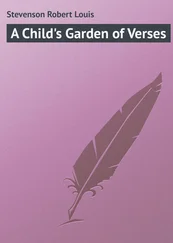‘You have a performance this afternoon,’ he said.
‘I’ll miss it. Won’t be the first time.’
Jacob went very still, his eyes closed. ‘I get tired, Milena,’ he said.
She could see it in the flesh around his eyes, and she knew she shouldn’t ask again. But without him, the paper would be no use.
‘The Vampires bought it,’ she said, flipping through it. ‘They saved up money and got together and bought it. All of them.’ She didn’t want to manipulate him, but she couldn’t hide the disappointment.
‘I have to sleep in the afternoons,’ he said. ‘If I don’t, I start to forget things.’ The two friends looked at each other. Jacob sighed and shifted on his feet. ‘But they will clean me out soon. I’ll forget everything, then. The music too. I’ll forget the music’ He nodded up and down, almost imperceptibly. ‘All right, Milena. All right. We meet. This afternoon.’
How could she pay all these people back?
‘Thanks, Jacob,’ she murmured.
Life crowded round.
Milena and Jacob met every afternoon in the practice rooms of the Zoo. Milena was not sure why, but she did not want Rolfa to know what they were doing.
Perhaps she thought Rolfa would be angry that Milena had spied on her while she was singing. Perhaps she thought Rolfa might tell her she did not want the music written down. So it was kept a secret.
Everyday Milena and Jacob would sit hunched and whispering over an old wooden table they carried in each day from a storeroom. Jacob dictated the notes in a low worn voice, his head in his hands. When he got too tired to translate them into notation, he sang the melody in a rich but restricted voice. It went as rusty as a rooster’s, and the workings of Milena’s hand began to ache from writing. Then Jacob would stop and look at her silently, and she would nod. And together they would carry the wooden table out again.
People would murmur an explanation to each other as Milena and Jacob passed. It was as if a stone had been dropped in water. Word was spreading. The world was beginning to do its work, finding what it needed. Sooner or later, the Snide would find them too.
‘Are you Milena?’ a girl, a stranger, asked. Green-blonde hair and Vampire make-up. With a kind of heave, Milena hauled the virus to the front of her mind. Heather, I am Heather. She didn’t get around to answering aloud.
‘Good,’ said the girl. ‘Don’t tell me. But we’re all keeping an eye out for the Snide. If he pokes around here while you’re in there…’ the girl nodded towards the practice room, ‘…we’ll keep him talking and send someone to warn you. That fits?’
Milena did not dare even nod in response. The girl left, half-running in black pixie boots. If you really want to help, Milena thought, how about carrying the table?
All the time, she had to battle with Heather. By day, by night, the virus did not stop reading. Heather gripped and Heather held, with powers of organisation and concentration that were beyond Milena, hauling her through the tangled forest that was Marx, pointing out a debt to Locke or Hume, refining a thought with a quote from Engels or Gramsci, always, always, making sure that Milena understood, understood in the same way that Heather did.
What, Milena wondered, have I called up in my mind? Viruses were supposed to be a passive reservoir of information, like your own memory. They were not supposed to drag you through the minutiae of experience. Das Kapital was over three thousand pages long, and Heather was determined to read it all, exploring every last dreary, undeniable nuance. She had no intention of ever finishing, she would go on and on, determined to control, without a shred of self-doubt or pity. God, the woman must have been a pain. When she was alive.
Heather, Irish Heather, if only there were some softness about you, some hidden anguish or pain, then I could feel sorry for you, I could understand, sympathise, but there is something inhuman about you. You wanted to be a disease. The match between you and the virus was perfect. You and the virus both need minds to inhabit, DNA to remould. Like Helen Lane’s tumour, you are immortal, undead, and you have hold of me.
Milena began to think that what she had was an illness, in the old sense of something that did not cure, but wounded. Heather was like arthritis, a continual pain that had to be managed. The boredom was excruciating. Milena managed it by asking herself if it was worse than the boredom she usually inflicted on herself. Was it any worse, for example, than humming over and over to herself a song that she hated? Was it any worse than sitting alone in the Zoo cafe and examining, one by one, all her many faults of personality? If Milena was now infected by a dedicated Marxist philosopher, who had infected her before? Someone who hated Milena, who tormented her; someone who chattered away at her, who kept her distracted with a stream of useless quibbling that she would have tolerated from no one else.
Milena began to yearn for silence. As Heather read, as the music mounted, as Jacob faded, as she wondered what was happening with Love’s Labour’s, as the fear of the Snide continually nibbled at her, Milena developed a most profound and earnest desire for stillness.
She would return each afternoon from the practice rooms to find Rolfa growing distant and wan. Rolfa would smile at her in a soft and hazy way, eyes dim. It was a smile that was too accepting, that was without hope. Milena would know from that smile, and from the pallid sunlight on the walls, and from the shadows grown long from waiting that she did not have much time to do her work.
And there would be a toothbrush in the candleholder and a foundation garment in a saucepan, and the floor underfoot would be both sticky and crunchy at the same time from a meal of toast and honey. Milena would perceive and regret the disruption that had ploughed its way through her life. She would miss it, were it to go.
Then one afternoon, Milena came back, and Rolfa was not there.
Well, this is it, she thought, this is how it begins. One day she simply will not be here and I will never know, never know if she was caught, or simply went away. There is nothing I can do. She slumped onto the bed and closed her eyes and waited, listening for a familiar footfall. She opened her eyes again, and it had grown darker. She stood up and began to tidy things away.
She piled up the papers that Rolfa had disordered. She cleared away the washing up that Rolfa had done, leaving honey on the bottom of the plates. She found chicken bones in her clean clothes bag, and held them up, looking at the traces of Rolfa, the shreds of meat her teeth had left behind. It grew dark, and Milena became more and more certain that Rolfa had gone, and that it had all been for nothing.
Then, sitting in the dark, Milena heard a door slam, far below. She heard a great echoing voice roar up the staircase. Rolfa! Milena jumped up, overjoyed. She listened as Rolfa kept singing, recklessly. For God’s sake, keep quiet! Do you want to post a sign and tell them that you’re here? Rolfa began to whistle. Milena began to feel aggrieved. Why couldn’t you tell Jacob where you were going? Where have you been all this time? The whistling drew near the door. Then there was a thump.
‘I do not seem,’ said Rolfa, in her mellowest tones, ‘to be able to open the door.’
Drunk, thought Milena. ‘Try turning the handle,’ she said.
Rolfa thumped against the door again. ‘Why am I unable to open the door?’ she asked heaven.
Oooh, thought Milena. More low comedy. She went to the door to open it and couldn’t. The handle would not move.
‘Why won’t you open the door?’ Rolfa asked.
‘Because you’re pulling the handle up, Rolfa. Rolfa? Let go of the handle, Rolfa.’ Milena was enunciating very clearly and slowly.
Читать дальше












